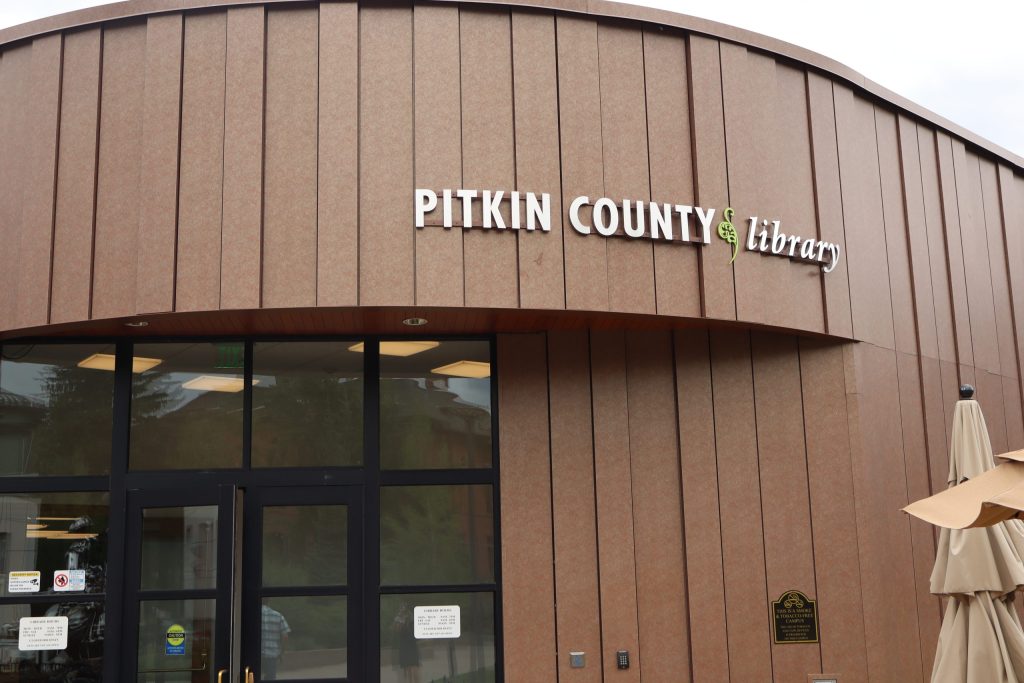Pitkin County building electrification costs more than expected
Full heat-pump conversion may be cost prohibitive, staff assessing lower cost hybrid-alternatives

Madison Osberger-Low/Courtesy photo
A year-long effort to electrify the Pitkin County Library and the Schulz Health and Human Services building have come to a crossroads as Pitkin County staff grapple with higher than expected costs for the projects.
“There were a lot of unknowns when we started down this road,” Pitkin County Deputy Manager Ryan Mahoney told Pitkin County Board of County Commissioners at the Tuesday meeting. “We’ve gotten all the way through procurement to get numbers back that were quite a bit higher, about double of what we had initially anticipated, directionally, in the $10 million range to electrify both the HHS and the library.”
When the project was approved in 2024 following a study on electrifying the two buildings in 2023, the anticipated costs were closer to $5 million. The county approved that budget and received a $3 million grant from the state of Colorado’s Department of Local Affairs (DOLA) to support the project.
The original proposal involved switching from existing and aging gas-boilers to all-electric boilers. Following a recommendation made in a 2024 work session, the commissioner agreed to consider a hybrid system using more efficient heat pumps in conjunction with gas boilers that would allow for redundancy and significantly reduced costs of operation.
However, between inflation and infrastructure update costs that the new plan required, costs are higher than anticipated.
“If you’re going to roof-mount, then all of a sudden you kick in new building codes that require screening and extra structural elements that jack up the price,” Mahoney said.
Sunrise Rundown: Headlines. Breaking News. Local Updates.
Get your essential news every weekday from The Aspen Times—start your day informed.
Sign up for the Sunrise Rundown at AspenTimes.com/newsletter
In the meantime, county staff are developing a priced out list of alternatives to give county commissioners a better idea of all the options in front of them.
“What are the lower cost alternatives?” asked Peter Rumsey, president and CEO of Decarbonization Strategies, a consulting firm that works on building decarbonization. “Obviously, there is doing nothing. The problem with doing nothing is that you lose the grant money that’s there to help pay for electrification.”
Among the other alternatives that Rumsey suggested is replacing the 15-year-old boilers with electric resistance boilers, which would bring lower up-front costs but are more costly to run than heat pumps. Additionally, he noted a modified hybrid system could keep some of the existing boilers and reduce the number of heat pumps required to upkeep the buildings, reaching around 80% electrification and requiring no structural changes or upgrades.
All of these options still need to be priced out, and county staff told commissioners they would be back with more information.
“We do not have pricing for those options, so staff will come back to the board in a few weeks when we have the full pricing with the options, so that we can get direction from the board on which direction should we take, based on the funding we have,” said Jodie Grady, Pitkin County assets and project manager.
Aspen School District sees highest ever performance, state metric says
The Aspen School District received its highest ever state performance ranking this year.
Coyote or gray wolf? How to tell the difference in the Roaring Fork Valley
As hunting season gets under way, Colorado Parks and Wildlife is warning those with coyote tags to be aware of the differences between coyotes and wolves.










